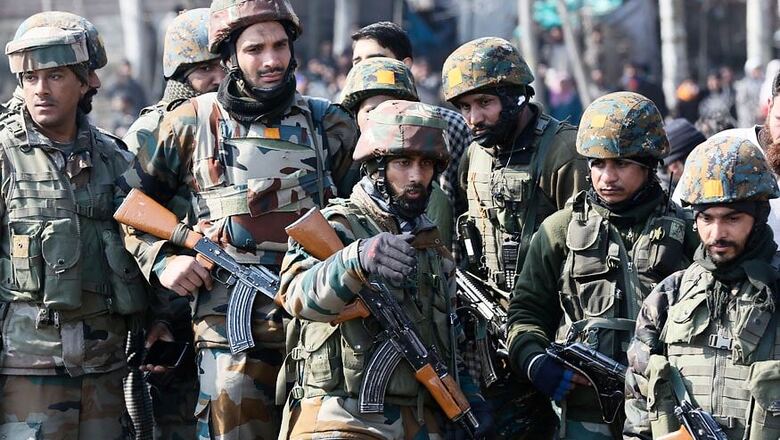
views
On June 24, the Central Board of Direct Taxes (CBDT) issued a circular withdrawing the benefit of income tax exemption on the disability pension to military veterans who had retired after serving their full term.
The veteran community rose up in protest against one more instance of bureaucratic apathy towards the armed forces and the typical insensitivity in dealing with disability cases. Facing criticism, the defence minister promised in Parliament that he would look into the matter.
The dust kicked up by the finance ministry circular would probably have died down in a few days after the usual Twitter war and television debates. The outcome would either have been a retraction of the order, as has happened in a few cases in the past, or a weary acceptance by the disabled veterans to start paying the income tax.
However, the events that followed a few days later reignited the debate. These events are, in my opinion, much more worrying when viewed within the broader context of our civil-military relations. On July 2, the Finance Minister tweeted an undated and unsigned letter calling it the "response of the armed forces on the issue of taxability of disability pension”. It is evident that this response came after the CBDT circular had already been issued because it quoted the case of Major General Ian Cardozo who had appeared on some television channels and criticised the government’s move.
Even considering that the finance minister’s decision was based on prior recommendations of the army, the alacrity with which the decision was taken is remarkable. Contrast this with the anomalies of the 7th Pay Commission remaining unresolved, the Justice Reddy report on One Rank, One Pension seemingly buried, and the recommendations of the military on Non-Functional Upgrade not being accepted. The last case is being fiercely contested by the government in the Supreme Court.
There is also a more significant issue of the political leadership placing the military in front while taking policy decisions. Having taken a consistent stance in the past that no one should question the military, there is now an attempt by the government to put the onus for this poor decision on the army. However, in a democracy, policy-making should remain firmly in the hands of the civilian government and hiding behind the military has many adverse implications on the future of our civil-military relations.
It is also worrying that the army has willingly lent its shoulder to a decision that goes against its own soldiers. The language in the letter tweeted by the finance minister was in extremely poor taste, but the speed and manner in which the official Twitter handle of the Indian Army reacted was even more shocking.
In retweeting the letter, it sought to justify the decision based on the exploitation of disability benefits by "unscrupulous personnel" and a rise in "personnel seeking disability, even for lifestyle diseases”.
There are many logical and legal infirmities with the justifications given in the letter, but my intention is not to go into these. What is of greater concern is a growing trend in the army to make public comments that paint its own officers and men in poor light. We regularly read about the misuse of hotel stay, canteen facilities, ex-servicemen health benefits, and now disability pension. If there are infirmities in our procedures, they must be ruthlessly plugged and those unfairly exploiting the system should be given exemplary punishments. However, this demonising of the officers and soldiers and threatening withdrawal of facilities is not good for the morale of the army.
There is an accepted 'Military Covenant' between the nation and its soldiers. Some countries like the United Kingdom have formally introduced this term in public life, while others look upon it as an unspoken pact, but the meaning of the covenant is clear. Soldiers put the nation above themselves and willingly sacrifice their limbs and lives in the line of duty.
In return, the state has the moral obligation to value, respect, and support the soldiers and their families with commensurate conditions of service. This is a mutual obligation that forms the basis of the relationship between a country and the members of the armed forces, and any weakening of this bond due to suspicion and mistrust does not bode well.
Many respected veterans have expressed the confidence that the decision on taxing the disability pension will be reversed with the intervention of the defence minister. Mr. Rajnath Singh is an ardent supporter of the soldier, and his first visit after taking charge was to the Siachen Glacier. Among those waiting anxiously for his decision will be the soldier who lost his foot to a mine blast while returning after successfully carrying out the 'surgical strike’ of September 2016.
(The author is former Northern Commander, Indian Army, under whose leadership India carried out surgical strikes against Pakistan in 2016. Views are personal.)


















Comments
0 comment